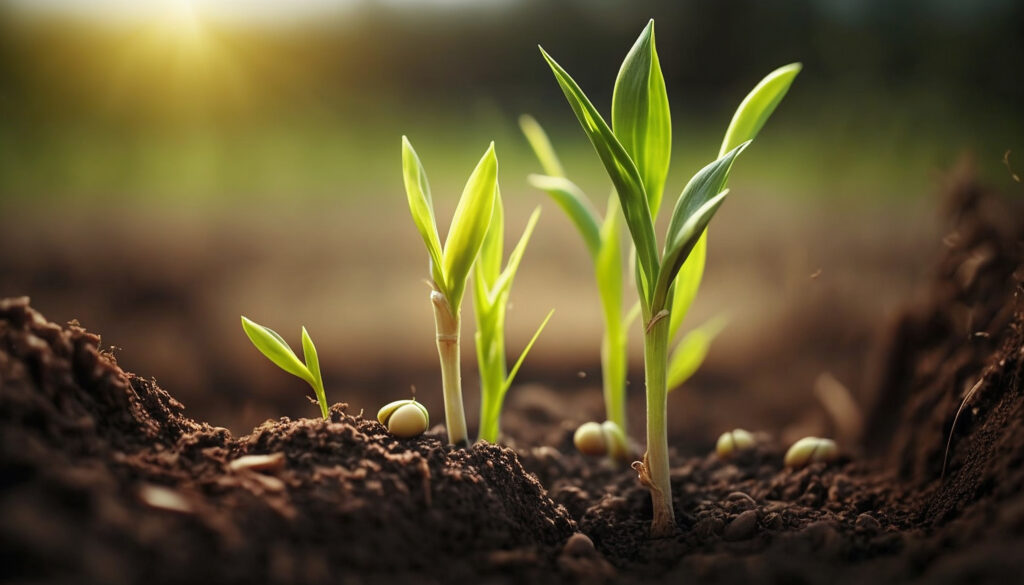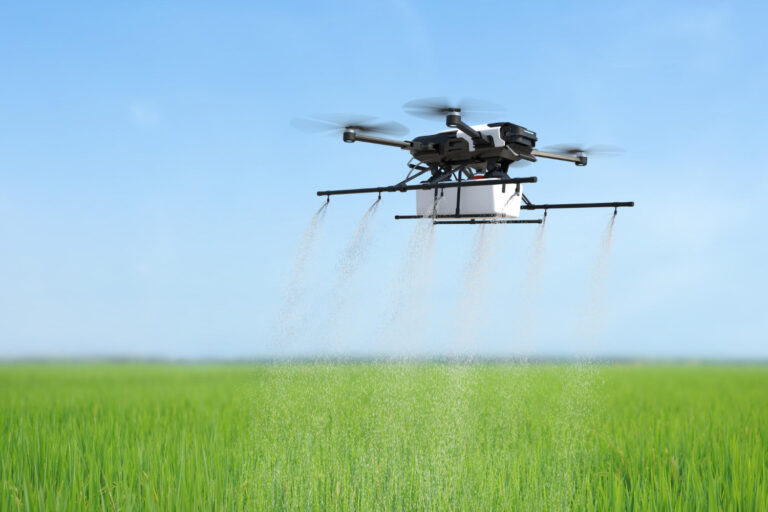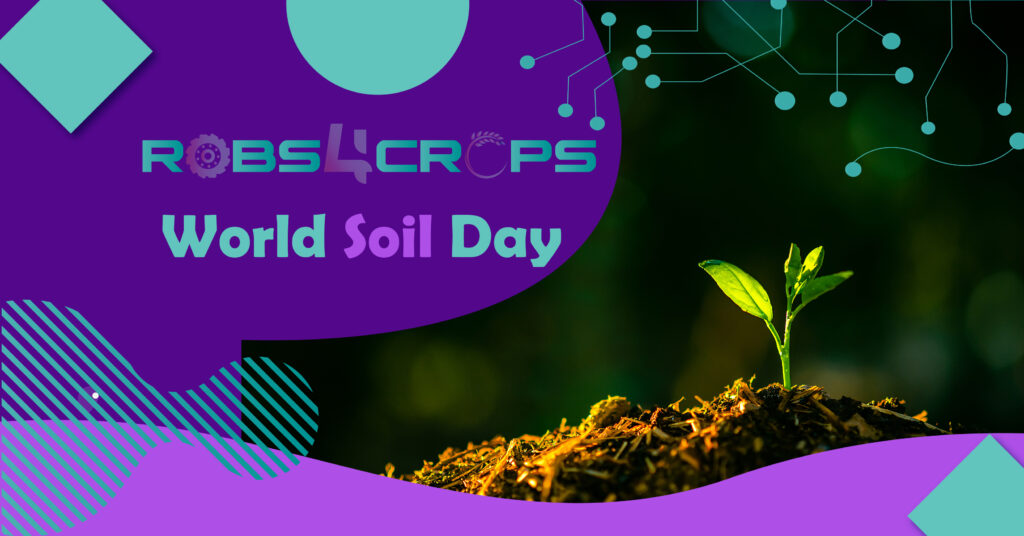How does the integration of cutting-edge technologies and agricultural robots elevate the sustainability and efficiency of farming, particularly in bolstering soil health? A pivotal advancement in this domain is the deployment of autonomous weeding and spraying robots, adeptly resolving longstanding challenges in weed management and crop protection while concurrently promoting improvements in soil health.
The Importance of Soil Health
Soil health is the foundation of successful agriculture. It influences crop growth, nutrient availability, and overall ecosystem stability. Weeds, if left unchecked, can compete with crops for essential nutrients and water, hampering their growth and reducing yields. Additionally, the indiscriminate use of chemical pesticides can have adverse effects on soil health, disrupting the delicate balance of microorganisms and depleting organic matter. To begin at the outset, FAO underscores the crucial definition of soil health, characterizing it as “the continued capacity of soil to function as a vital living system, within ecosystem and land-use boundaries, to sustain biological productivity, promote the quality of air and water environments, and maintain plant, animal, and human health” (Pankhurst et al., 1997). Furthermore, National Geographic emphasizes the critical role of soil in supporting all life on Earth. Serving as a natural filter for water and a vital medium for crop growth, 95 percent of our food relies on the fertility of topsoil. However, human activities are rapidly degrading this precious resource, posing a significant threat to our ability to sustainably produce the food we rely on.

Weeding Robots: Precision and Efficiency
Traditional weeding methods often involve manual labour or broad-spectrum herbicides, both of which can be labour-intensive and environmentally harmful. Weeding robots, equipped with advanced sensors and artificial intelligence, offer a more sustainable and precise solution. These robots can navigate fields autonomously, using cameras and sensors to identify and differentiate between crops and weeds. With machine learning algorithms, they continuously improve their ability to distinguish between desirable plants and invasive species. By selectively targeting weeds, these robots reduce the need for widespread herbicide use, promoting healthier soil ecosystems.
Sustainable Spraying Practices
Agricultural robots designed for spraying tasks bring a level of precision that is unparalleled. Traditional methods often result in overuse of pesticides, negatively impacting both the environment and soil health. In contrast, spraying robots can precisely target crops, delivering the necessary substances directly where needed. This targeted approach minimizes chemical runoff, preventing the contamination of nearby water sources and reducing the overall environmental impact. By sparing non-target areas from unnecessary exposure to chemicals, these robots support the preservation of soil microbiota, fostering a more balanced and sustainable ecosystem.

Benefits of Weeding and Spraying Robots for Soil Health
Reduced Chemical Usage: According to HowToRobot, robots can greatly influence those looking to reduce overall chemical use. Weeding and spraying robots, equipped with state-of-the-art sensors and advanced artificial intelligence, offer unparalleled precision in targeting unwanted vegetation. By differentiating between crops and weeds with remarkable accuracy, these robots significantly reduce the reliance on broad-spectrum herbicides and pesticides. The discerning application of chemicals ensures the preservation of the natural microbial diversity within the soil, maintaining a delicate ecological balance that contributes to long-term soil health.
Minimized Soil Erosion: One of the critical challenges in agriculture is soil erosion, often exacerbated by the unchecked growth of weeds. Weeding robots play a pivotal role in preventing overgrowth, striking a harmonious balance between crops and unwanted vegetation. Beyond their role in weed control, these robots indirectly contribute to soil health by anchoring the soil and mitigating erosion risks. The preservation of topsoil is vital for sustaining fertility and establishing the groundwork for long-term agricultural productivity.
Optimal Crop Care Leading to Improved Yields: The precision afforded by weeding and spraying robots extends beyond environmental considerations to directly impact crop health and, subsequently, yields. Through meticulous weed management and targeted spraying, crops receive optimal care tailored to their specific needs. This heightened level of attention translates to enhanced overall crop health, robust growth, and increased yields. This not only benefits the economic viability of farming operations but also contributes to global food security.
Environmental Sustainability: As farmers increasingly integrate robotic solutions into their agricultural practices, they contribute to the broader movement towards sustainable farming. The reduced chemical runoff, minimized environmental impact, and judicious resource usage associated with weeding and spraying robots align with the principles of environmentally conscious agriculture. This transition to more ecologically friendly practices reflects a commitment to responsible farming and the preservation of the natural ecosystem.
As weeding and spraying robots seamlessly integrate into the fabric of modern agriculture, their transformative impact on soil health unfolds as a beacon of sustainability. Representing a significant paradigm shift towards environmentally conscious farming, these technologies, driven by precision and autonomy, not only maximize operational efficiency but also serve as guardians of soil health for future generations. The nuanced approach to weed control and targeted pesticide application minimizes the environmental footprint, aligning seamlessly with the global push for sustainable agriculture. Beyond economic gains, the adoption of these robotic solutions signifies a commitment to responsible farming, laying the foundation for a resilient and fertile soil ecosystem that endures for the prosperity of both current and forthcoming generations.
How Robs4Crops drives change
The ROBS4CROPS project, backed by EU funding, aims to enhance soil health through the implementation of a cutting-edge, fully autonomous robotic system designed for spraying and mechanical weeding. By incorporating smart implements, autonomous vehicles, and advanced software for planning and scheduling, the project seeks to revolutionize agricultural practices. This innovative system not only streamlines operations but also reduces labour requirements, leading to cost savings for farmers. The resulting efficient and sustainable approach contributes to overall soil health improvement, promoting a more environmentally friendly and economically viable agricultural landscape.
Stay tuned for more!

